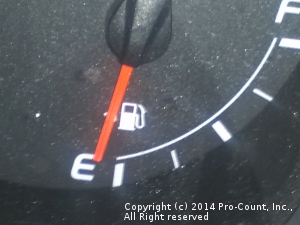
Energy Crisis? Or Non-Crisis?
I always have my eye out for interesting science news. I’m also somewhat concerned with the price or (and other problems associated with) gasoline.
So, when one of the latest stock newsletters sent me a teaser with the headline “Massive Rollout of New Liquid Fuel Called Sun-Gas” (aka SynGas) which is supposedly going to “completely replace the need for shale oil/gas,” I naturally checked it out. Not wanting to sit through a 30-minute video ad come-on for a financial newsletter (which I already know is not worth anywhere near the price they want, since it is almost entirely composed of ads for more expensive products), I did some elementary “Bing-ing.” (Bing usually gets better results for this sort of search than Google does.
Well, seems there really is something to it. I found an article on the University of Minnesota website that describes the technology in somewhat less-hypey verbiage than I saw in the email sales spiel. Basically, it’s a method for using sunlight, concentrated using mirrors, along with some relatively inexpensive metal oxide catalysts to convert water and carbon dioxide to hydrogen and carbon monoxide, which can be processed into heavier hydrocarbons like butane, propane, octane (gasoline) and cetane (diesel) without a lot more added energy. And none of that energy requires fossil fuel input.
The Really Big Deal is that the SynGas technology is “carbon neutral,” meaning that the carbon is completely recycled. And wonder of wonders, it gets rid of some of that awful Greenhouse Gas, carbon dioxide.
One fly in the ointment, though — one of the intermediate steps involves the production of hydrogen. Hydrogen was once the darling of the Radical Environmentalist mob, because it was so “clean.” But there are two problems with hydrogen:
- It is really hard to handle in any practical way, and
- It is the most potent ozone-depletion agent known to man.
Hydrogen is nearly impossible to keep contained (#1 above), and getting enough to provide a useful amount of energy requires extreme pressure or expensive adsorption materials coupled with some sophisticated processes. Since the technology for handling the large quantities of hydrogen is pretty complex and expensive (especially considering the fact that it is not a very energy-dense fuel), and carrying around a useful amount of hydrogen involves having what amounts to a very powerful potential bomb in your car (which might be exploited by some terrorist in rush-hour traffic), hydrogen as a fuel never really got much traction, and probably won’t, due to some basic limitations of physics. Not to mention the aforementioned terrorist.
Due to the fact that no matter how effectively you contain hydrogen, a bit of it will always leak out (and go straight up), handling a lot of the stuff will cause more ozone depletion than any other substance produced by man. So, unless you are a Radical Environmentalist who is willfully ignorant of things like physics and chemistry, that might be a bit worrisome.